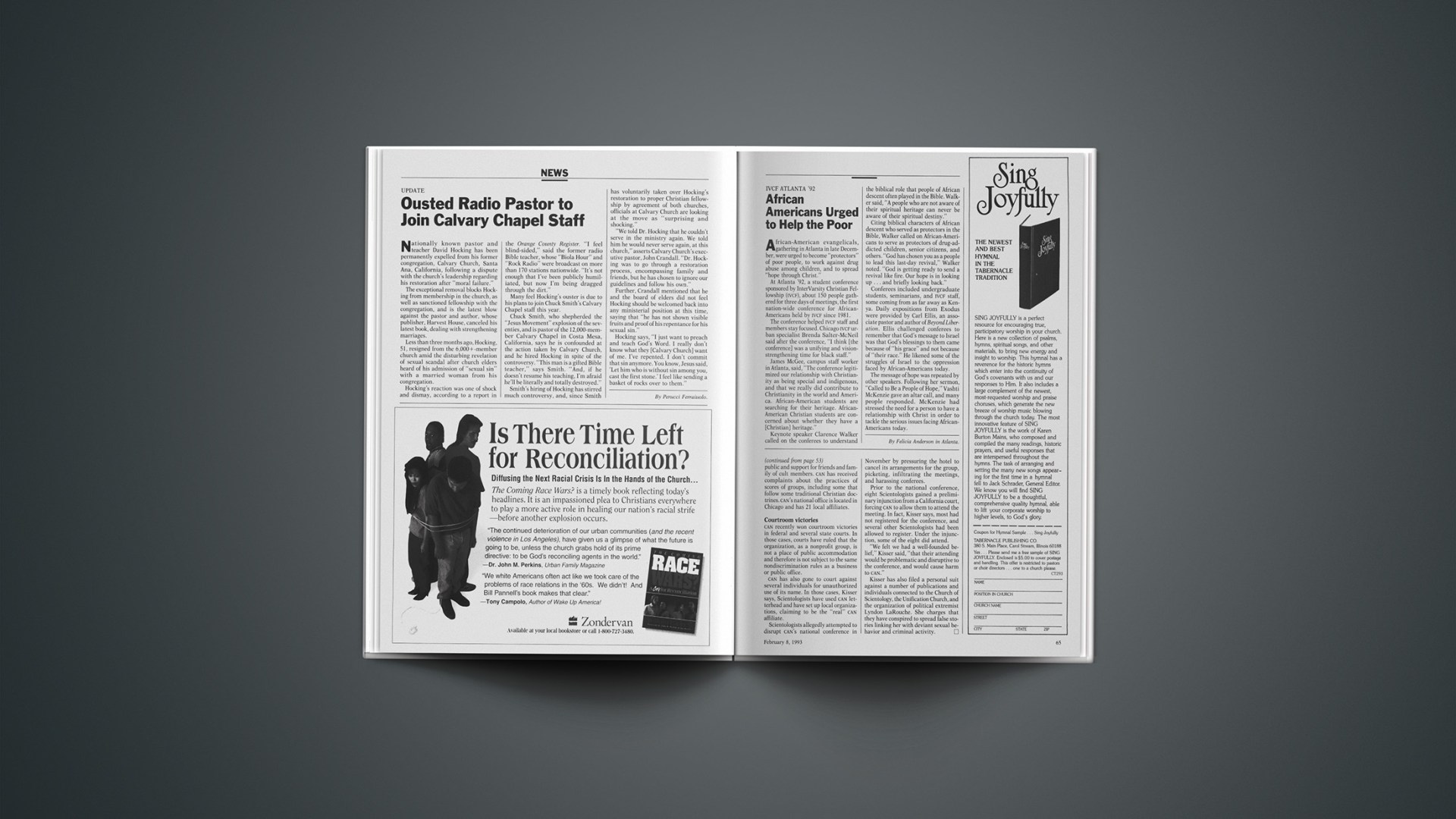African-American evangelicals, gathering in Atlanta in late December, were urged to become “protectors” of poor people, to work against drug abuse among children, and to spread “hope through Christ.”
At Atlanta ’92, a student conference sponsored by InterVarsity Christian Fellowship (IVCF), about 150 people gathered for three days of meetings, the first nation-wide conference for African-Americans held by IVCF since 1981.
The conference helped IVCF staff and members stay focused. Chicago IVCF urban specialist Brenda Salter-McNeil said after the conference, “I think [the conference] was a unifying and vision-strengthening time for black staff.” James McGee, campus staff worker in Atlanta, said, “The conference legitimized our relationship with Christianity as being special and indigenous, and that we really did contribute to Christianity in the world and America. African-American students are searching for their heritage. African-American Christian students are concerned about whether they have a [Christian] heritage.”
Keynote speaker Clarence Walker called on the conferees to understand the biblical role that people of African descent often played in the Bible. Walker said, “A people who are not aware of their spiritual heritage can never be aware of their spiritual destiny.”
Citing biblical characters of African descent who served as protectors in the Bible, Walker called on African-Americans to serve as protectors of drug-addicted children, senior citizens, and others. “God has chosen you as a people to lead this last-day revival,” Walker noted. “God is getting ready to send a revival like fire. Our hope is in looking up … and briefly looking back.”
Conferees included undergraduate students, seminarians, and IVCF staff, some coming from as far away as Kenya. Daily expositions from Exodus were provided by Carl Ellis, an associate pastor and author of Beyond Liberation. Ellis challenged conferees to remember that God’s message to Israel was that God’s blessings to them came because of “his grace” and not because of “their race.” He likened some of the struggles of Israel to the oppression faced by African-Americans today.
The message of hope was repeated by other speakers. Following her sermon, “Called to Be a People of Hope,” Vashti McKenzie gave an altar call, and many people responded. McKenzie had stressed the need for a person to have a relationship with Christ in order to tackle the serious issues facing African-Americans today.
By Felicia Anderson in Atlanta.










